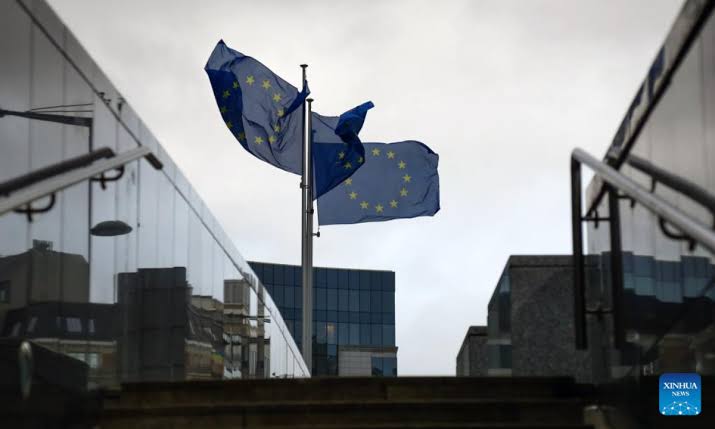EU-Ukraine Summit may expose divergences among EU members

European Union (EU) leaders arrived in Kiev last Friday for a meeting with Ukrainian President Volodymyr Zelensky at what some Western media called a “historic” summit, but observers believe it could dash Ukraine’s hopes for swift membership into the EU.
The EU-Ukraine Summit, at its best is just “a political show,” which will only expose the profound divergences among member states, and the dilemma that Europe has put itself into between upholding “political correctness” and maintaining its own development interests.
It is time that Europe reflects on its stance, as it has been, for too long, plunged into passivity over the Russia-Ukraine conflict which has brought about a burden that is almost too heavy to bear, analysts urged.
It is the first EU-Ukraine summit since the Russia-Ukraine conflict, and also the first since the European Council granted Ukraine the status of candidate country in June 2022.
Speaking at the start of a two-day trip in Kiev, European Commission president Ursula von der Leyen said the EU has pledged to double its military aid program for Ukraine by training an extra 15,000 soldiers, and that a 10th package of sanctions against Russia will be in place by February 24, a year after the conflict broke out, the Guardian reported on Thursday.
While Europe is showing “unswerving” support for Ukraine in terms of military and financial aid, it is far from ready to admit the country into the EU at such a fast pace, as some member states have warned that it should be made clear that this will not be possible.
France, Germany, Italy and the Benelux nations have also warned against striking an overly optimistic tone over the joint statement to be released after the summit, BBC reported, and last May, French President Emmanuel Macron warned it could take “decades” before Ukraine meets the criteria and achieves full membership.
The last country to join the EU was Croatia in 2013, a decade after formally applying. For Ukraine’s neighbor Poland, it took 20 years before it joined in 2004, according to media reports.
The West is showing great divergences over opening a “fast track” for Ukraine’s admission into the EU. Two voices are fighting within the system – one insisting that Ukraine follow the rules and join after meeting all the criteria, while the other says it should be handled as a special case, showing support for Ukraine by admitting it into the organization so as to further pull it in, which is also in line with the long-term interests of Europe.
Ukraine did not stand a serious chance of becoming a candidate before the conflict broke out, analysts said, as it was far from being able to meet the membership standards given its less developed economy and outstanding corruption issues.
A fresh wave of anti-corruption raids was carried out in Ukraine ahead of the summit in a bid to appease EU leaders. Among those targeted were residences linked to influential billionaire Igor Kolomoisky, one of the country’s richest men, who has holdings in a slew of industries, including media, aviation and energy, France24 reported.
The reason why Ukraine was able to become a candidate was out of political considerations. Saying yes to Ukraine has become a politically correct thing to do for Europe, but there are indeed difficulties involved in admitting Ukraine at this point, especially with a heavy fiscal burden under such high inflation.
The other reason the EU will not admit Ukraine at this point is that it doesn’t want to anger Russia and stir up trouble that will invite conflict to its own doorstep, analysts noted.
Experts called on the EU to reflect on its stance toward the Russia-Ukraine conflict, and stop being further dragged down the vortex as it has been, which has brought about serious consequences including economic recession, an energy crisis, massive strikes and livelihood issues.
Overall military support from the EU to Ukraine is estimated at being close to 12 billion euros ($13.1 billion). Overall assistance to Ukraine pledged at both EU and member state levels so far amounts to nearly 50 billion euros ($54.5 billion), according to data from the EU website.



